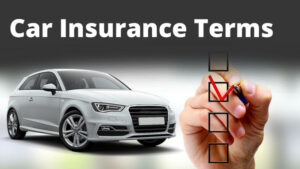 Courtesy of iii.org
Courtesy of iii.org
Accidents happen—and if they happen to people you’ve hired to come into your home or onto your property to work, you’re financially liable. It makes sense to understand how you’re already covered and when to further insure household help.
Appropriate and adequate insurance coverage depends on the nature of the employee’s position and the assets you’re protecting. As always, consult your insurance professional with any questions or requested changes to your policy. Here’s some information to get you started.
If you contract a worker with an outside firm
For many household and in-home care needs—for example, for a nurse, a physical therapist, a cook or a housekeeper—you may decide to contract with a business or agency that provides these types of pros.
- Determine who is the employer. When you’re dealing with a firm or agency, in most cases the worker you hired is an employee of that business and insured under their auspices. (If for some reason you’re the employer, read on to the situations below and talk to your insurance professional.)
- Ask the firm for a copy of its certificates of insurance, which provides documentation that the firm provides workers compensation for its employees. If the firm also offers health and disability insurance, you can feel comfortable that any worker injured on your property will receive medical treatment.
If you hire occasional workers
If you occasionally hire a babysitter to take care of your children or a young person in your neighborhood to rake leaves or clean the garage, review your current insurance and:
- Learn about the current no-fault medical coverage in your homeowners policy or renters insurance. If someone other than an immediate family member is injured on your property, you can submit their medical bills directly to your insurance company for reimbursement. Make sure your policy limits are adequate to your needs.
- Check your liability insurance. Depending on your current homeowners and renters coverage and your assets, you may elect to raise the amount or buy more coverage through an umbrella liability policy.
If you hire permanent full- or part-time employees
If you hire one or more home workers on a permanent, regularly scheduled basis, consider purchasing workers compensation insurance. Workers comp provides coverage for medical care and physical rehabilitation for an employee who is injured on the job, as well as lost wages if the employee is severely hurt and no longer able to work. In the worst-case scenario, it also provides death benefits.
- Find out if your state requires workers compensation for the type of employees you’re hiring (ex. housekeeper, gardener, etc.). Your state workers compensation board or agency can provide this information.
- Determine the mandatory requirements workers comp coverage. For instance, some states may require an employer who hires a certain number of employees to buy workers compensation. In other states, the determination might be based on the number of hours an employee would work.
- Don’t ignore the law. It’s important to note that if you’re required by law to buy workers compensation insurance and you fail to do so, your homeowners or other applicable policies will not pay for any fines, court awards or any other penalties against you.
If your employee is going to drive your car
Whatever the nature of the employee relationship, it’s important to inform your auto insurance company if the person you hire is going to drive your car. For example, if you’re going to lend your car to a worker to pick up groceries or take an aging parent to the doctor, your insurer needs to know about the additional driver for auto insurance purposes. Whatever the employee car usage, your insurer can explain your options.
Next steps link: Do you anticipate lots of workers because you’re renovating? Know the insurance implications of remodeling your home.
 Courtesy of
Courtesy of  Courtesy of
Courtesy of  Courtesy of
Courtesy of  Courtesy of
Courtesy of